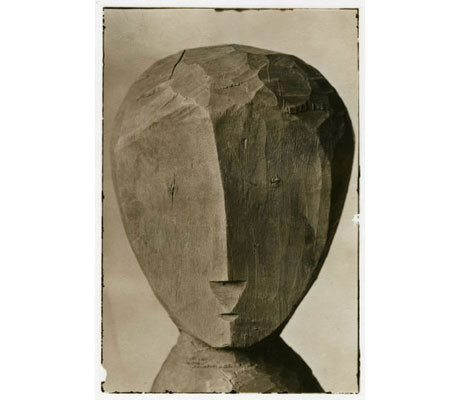Vladimir Markov
dal 29/1/2013 al 27/4/2013
Segnalato da
29/1/2013
Vladimir Markov
Henry Moore Institute, Leeds
Displays and Fictions. His research led him to photograph works of art across Europe, documenting many different modes of display, and, indirectly, revealing the ways in which photography can be used to tell a particular artistic narrative. This exhibition focuses on the depiction of sculpture, by exploring photographs, publications and a painting by Markov from 1910.

Voldemārs Matvejs (b. Riga, 1877; d. St Petersburg, 1914) was a Latvian painter and art theorist who was fascinated by the display and understanding of art. He took 'Vladimir Markov' as his nom de plume in 1912, marking the first publication of his theoretical writings. In the three years before his death he researched a universal theory for the development and understanding of art, based on fundamental studies of the art of 'all periods and regions'. His research led him to photograph works of art across Europe, documenting many different modes of display, and, indirectly, revealing the ways in which photography can be used to tell a particular artistic narrative. This exhibition focuses on the depiction of sculpture, by exploring photographs, publications and a painting by Markov from 1910.
The display, developed by the Henry Moore Institute with Dr Jeremy Howard (University of St Andrews, 2012 Henry Moore Institute Senior Research Fellow) and Irēna Bužinska (Latvian National Museum of Art, Riga) investigates how Markov developed a visual theory of appreciating sculpture.
Between 1910 and 1913, while studying at the St Petersburg Art Academy, Markov became a spokesman for the Union of Youth, a Russian avant-garde artist group demanding artistic change and breaking out of the restrictive tenets of the academy and salon. In the first two issues of the Union's journal, published in April and June 1912, Markov's Principles of a New Art acted as a manifesto for the group.
Markov was obsessed by art, constantly finding ways to travel in order to visit ethnographic collections of sculpture. In 1912, as a representative of the Union of Youth, Markov visited Berlin, Cologne and Paris. As part of his work he purchased photographs of sculptures and paintings by Picasso, his (ultimately unrealised) aim being the establishment of the first Russian museum of contemporary art. In 1913 he travelled with his close friend Varvara Bubnova, and a camera given by the Union, to Oslo, Copenhagen, Hamburg, London, Paris, Cologne, Brussels, Leiden, Amsterdam, Leipzig, Berlin and St Petersburg. In each collection he visited, he made notes and drawings, and carefully selected individual works to photograph.
The images show Markov frequently found his way into storerooms, often using paper and sheets as makeshift backdrops. Markov's visual research informed four books. In Creative Principles in the Plastic Arts: Faktura (1913) he paid particular attention to the surfaces of sculpture and material processes in an investigation of the assemblage, artistry and 'noise' of visual art. In 1914 The Art of Easter Island was published, analysing the sculpture of the region from artistic, rather than ethnographic, perspectives. Between 1913 and 1914 he worked on the posthumously published Negro Art (1919), researched a year before Carl Einstein's 1915 much referenced Negerplastic. These books, along with exhibition catalogues from exhibitions organised by Irēna Bužinska, are held in our Research Library. His final planned book, The Art of Northern Asia, was unfinished at his untimely death, with many of his notes and manuscripts subsequently lost, leaving only a few surviving images as evidence of his research.
Image: From the collection of photos for the unpublished book 'The Art of Northern Asia'. Photograph taken 1913.
Courtesy of the Latvian National Library. Sculpture photographed in Kunstkamera, Museum of Ethnography, St. Petersburg
Press contact:
Rebecca Land +44 (0)113 246 7467 Rebecca@henry-moore.org
Henry Moore Institute
The Headrow, Leeds, LS1 3AH
Galleries open Tuesday - Sunday 11am-5.30pm; Wednesdays until 8pm; closed bank holidays
Admission Free
The Henry Moore Foundation



